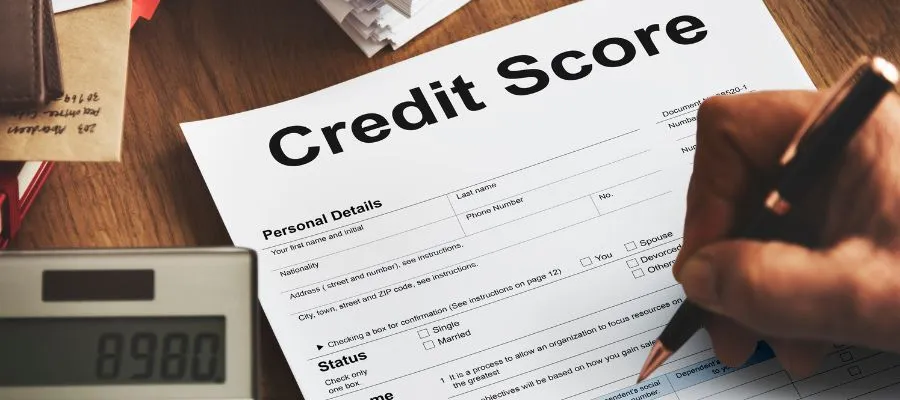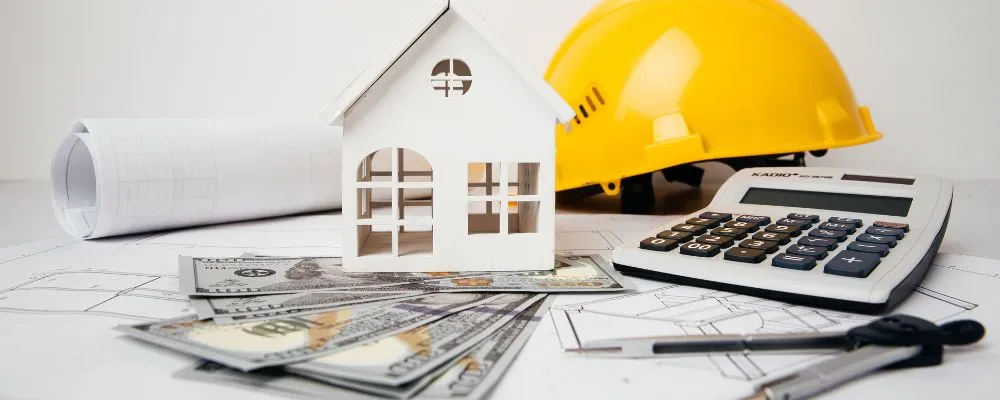Are you planning to build a home with a construction loan? But, getting a loan for the construction process can be hard and exciting as well. However, no need to worry, for the construction process, a construction mortgage is a type of loan that can be used to pay for constructing a new home. In this blog, Brick & Bolt will discuss construction mortgages, including how they work, their different types, who can get them, and their pros and cons.
What is a Construction Mortgage?
A construction mortgage, also called a construction loan, is a short-term loan used to pay for home construction or renovation. Construction mortgages are meant to cover the costs involved in constructing a house, from the home foundation to the finishes.
What are the Key Takeaways of Construction Mortgage
- Construction mortgage loans are short-term loans used to pay for labour, materials, and building permits while a new home is being built.
- With these loans, the money is distributed in steps, matching the different stages of the building process to keep costs down.
- There are different types of construction loans, such as construction-only loans, construction-to-permanent loans, owner-builder loans, and jumbo construction loans for high-cost properties.
- Building a new home involves more risk than buying existing home, so construction mortgages can be harder to obtain and usually have higher interest rates than standard home mortgages.
To know the estimated cost of your construction, use our construction cost estimator and plan your budget accordingly.
Types of Construction Mortgage

There are different types of loans are available. But two loans are the most commonly used loans. They are-
1. Stand-Alone Construction Loan:
This loan involves obtaining two distinct loans. The first loan can only be used for building your house and covers all of your house construction-related costs. Once the construction is done, you will get a different, traditional mortgage.
2. Construction-to-Permanent Loan:
This loan gives you a single loan that pays for your home construction. When the construction is done, this loan becomes a permanent mortgage, and you move in. Basically, this method combines the construction loan and the permanent mortgage into a single process, so you don’t need two different loans.
How a Construction Mortgage Works?
A construction loan is a way for investors to build a new home. This short-term loan differs from traditional mortgages because it only covers costs during the construction process.
Once the loan is approved, lenders release the money in steps called drawdowns, which match up with different parts of the building project’s schedule. This staged funding ensures that only the necessary funds are spent, helping the budget stay on track. One important aspect of most construction loans is that you only have to pay the interest during the construction period, which lasts less than a year.
Many people choose construction-to-permanent loans because they make it easy to turn this short-term loan into a regular mortgage once the construction is completed. This loan type promotes stability by making switching to standard mortgage terms easy after construction is finished.
Getting this kind of financing takes a lot of planning. Making detailed plans, sticking to a realistic budget, and choosing an experienced lender are all very important.
Additionally, lenders usually need at least a 20% down payment because the loan carries more risk than a traditional mortgage. This risk can be reduced by carefully planning the job and ensuring it is finished on time.
What are the Qualifications to Get a Construction Loan?

To qualify for a construction loan, you’ll need to meet specific credit score, down payment, and employment history requirements. Keep reading to learn more about these details.
Credit Score Requirements
Investors usually need a credit score of at least 680 to get a construction loan. This number shows that you are creditworthy and financially stable, which is what the lender wants. A higher credit score can make it easier to get a loan and could even mean better terms and interest rates. It is very important to keep your credit score high and no delays in bill payments or taking on too much debt. One important thing you need to do to get the money you need for your job is to meet the minimum credit score requirements.
Down Payment Requirements
To get a construction loan, investors should have at least a 20% down payment ready. This means giving at least Rs.60,000 upfront for a project that costs Rs.300,000. This is a stricter requirement than what is usually needed for a traditional mortgage because construction loans carry more risk. A big down payment helps protect lenders in case the project runs into problems or is late. Before you apply, make sure you have enough money saved for the down payment and any other costs that come with it.
Employment History
Lenders carefully review your work experience to see how stable you are and how likely you are to be able to pay back the loan. Your chances of getting approved greatly increase with regular work experience. When someone is self-employed, they may need to show more proof of their income and work experience, like tax returns. Most lenders want you to have been working for at least two years to get a construction loan. So keep in mind that if your job or income changes while you are applying for the loan, then it could affect your ability to get the loan.
Advantages of Construction Mortgage
Here are some advantages of construction mortgage
- Construction loans give you the flexibility to build your home the way you want.
- There are some construction loans that can be turned into traditional mortgages once the house is built.
- You only have to pay interest on the money you received, not the whole loan amount.
- These loans can be used to pay for land, construction materials, permits, and contractor work.
Mortgage loan and home loan are two terms that are generally used in the area of real estate financing.
Disadvantages of Construction Mortgage
There are many advantages to a construction mortgage, but there are also some disadvantages.
- For the most part, construction loan interest rates are higher than traditional mortgage rates.
- A higher down payment, usually around 20%, is generally needed for these loans.
- Delays in construction projects often occur, which can raise costs and cause problems with the lender.
- Getting a construction loan can be harder because you need thorough plans and a realistic budget.
In conclusion, a unique way to get the money you need to build your dream home is through a building mortgage. Before you start, you should know how the construction journey works, what qualifications you need, and the pros and cons of your chosen field. It can be hard to understand construction financing, but you can build your dream home if you carefully think through your options and work with experts. Construct your dream home with the best construction company and make your dream come true.

